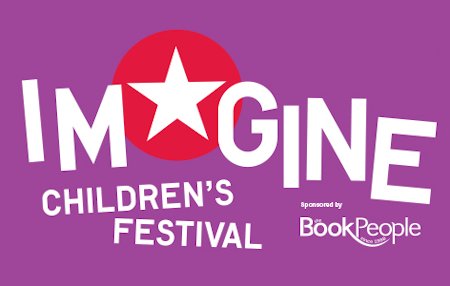Welcome back to the British Genre Fiction Focus, Tor.com’s regular round-up of book news from the United Kingdom’s thriving speculative fiction industry.
In this edition, Patrick Ness—the multiple award-winning author of More Than This and more—makes an impassioned plea about power as it regards reading and writing… a plea which his peer Robert Muchamore describes as “some kind of doom laden literary crisis.”
Who’s in the right? You decide. But the answer is Ness, yes?
Later today, a quick Kitsch, because I couldn’t resist—then this week’s links, in which there’s news of another new Stephen King novel, self-publishing’s poster boy Hugh Howey discusses his specialist subject, and keep your eyes peeled for what must be the best wordplay of the week.
Empowering Prose
In the wake of still more reports of libraries around the country coming under fire from a government which seems determined to wholly dispose of them, Patrick Ness has published a transcript of the speech he opened the Imagine Children’s Festival with a week or so ago.
Though he’s quick to point out that “a speech is a speech, not an essay. You publish it and it loses all intonation, tone,” and so on, I believe the piece makes some powerful points about power.
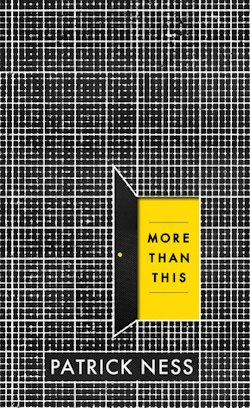
Ness was asked by the organisers to speak about passing the proverbial baton from age-group to age-group as YA’s audience evolves—in so doing ensuring that reading remains a key part of young people’s experiences—and that, I grant, is where he began:
Writers for children and young people seem to be asked and even expected to be activists, to be advocates, to be campaigners, more than any other group of artists.
Think about that. It’s true. You know, you never hear of “Sculptors for the Environment” or “Opera Singers for Veganism.” Rock musicians, I suppose, are probably second after children’s writers, but even then, if they get too boring about it—like Bono—we criticise them and send them back to their poor, empty lives of hedonism and wealth.
I mean, adult writers do get involved; there are great organisations like PEN and Writers for Liberty, which I’m a part of, but even then, the expectation behind that is one of avocation, between tomes, and it often only involves putting their names to “open letters” that achieve pretty much nothing except a mention in The Guardian.
But children’s writers. We’re different, aren’t we? People seem to expect us to be activists. On behalf of reading, on behalf of literacy, on behalf of libraries.
He’s perfectly happy about this, as it happens. But Ness feels his particular power is best represented by his books rather than the activism discussed above:
The story MUST come first. That’s where our power lies.
And that’s what I think when I start to feel hopeless. What I think of when I feel powerless in the face of things I disagree with. I think of what story I can tell that hasn’t been told before or told in my way before . What questions can I ask? How can I show a new world, a new future, and new possibilities to a young reader?
Because they’re listening. Don’t ever think they’re not. They listen because we ask the right questions and tell the best stories. That’s power.
And so absolutely shout against injustice, shout against stupid and venal government policies, shout against the politicisation of education, shout against opportunities being denied to poor students in state schools. Be an activist against all of that. Be an advocate, be a campaigner.
I will until the day I’m no longer able. But do all those things after you’ve spent the day writing to your fullest, to the wildest stretches of your imagination.
The transcript is worth reading in its entirety. It’s incredibly relevant, touching as it does on the recent hubbub over Harry and Hermione as well as the Sochi sexuality scandal, the inherent ignorance of Michael Gove’s “adversarial approach” to education and the penchant politicians have for disempowering the people.
Ness, on the other hand, wants to give us that power back, and more power to the man for trying!
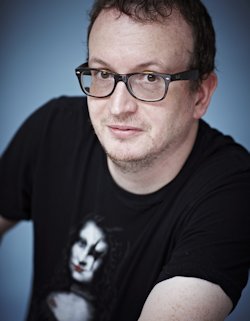
Sorry. For a second or so there I’d almost forgotten that this was the internet… then I saw the response of young adult author Robert Muchamore, who simply dismissed the problems portrayed by Ness—as well as several other speakers at the Southbank Centre last week—as “trivial” and symptomatic of “some kind of doom laden literary crisis that I can’t in any way relate to the thousands of kids I’ve spoken to in schools and at book signings over the past ten years.”
The Bookseller rounds up the reactions to the rest of his rant:
The Facebook post has already sparked debate across social media and Jeff Norton published a blog post accusing Muchamore of having “an ‘I’m all right Jack’ selective ignorance.”
“I do wish that if Robert Muchamore isn’t interested in supporting and saving the schools and libraries infrastructure that have contributed to his financial success, and the individual social mobility of a generation of children, that he’d just stay home, shut up, and write more books,” he said.
On Facebook, Matt Haig said he quite liked the “honest curmudgeonly tone” of Muchamore’s rant but argued that […] many people can’t afford books, because “the safety net that keeps Britain a great, caring one-for-all nation is being cut away.”
Patrick Ness simply said: “Oh, Robert. I made a lovely red velvet cake today with vanilla frosting. Want a piece?”
A very generous offer, but I can only assume Muchamore plans to pass on his piece.
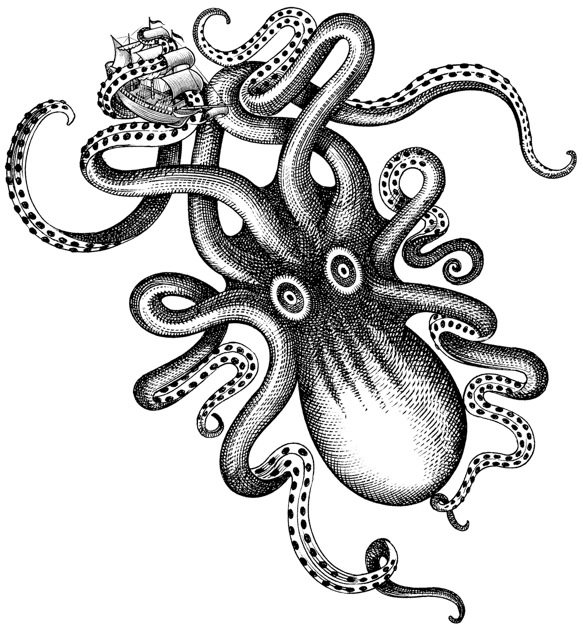 Awards Watch: A Quick Kitsch
Awards Watch: A Quick Kitsch
Last Wednesday, we learned about the winners of The Kitschies. The results have already been reported on Tor.com, so we needn’t go into great detail about them here… but how about the highlights?
Me, I figured More Than This would win. Instead, Ruth Ozeki beat Anne Carson, Thomas Pynchon, Patrick Ness and James Smythe to the coveted Red Tentacle for Best Novel: namely A Tale for the Time Being.
Ancillary Justice’s Ann Leckie took home the Golden Tentacle for Best Debut, meanwhile, Will Staehle won the Inky Tentacle for his cover art for The Age Atomic and the discretionary Black Tentacle went to Children’s Laureate Malorie Blackman for her contribution to the field in recent years.
Some terrific picks, I think… and isn’t that just typical of the Kitschies?
Odds and Sods
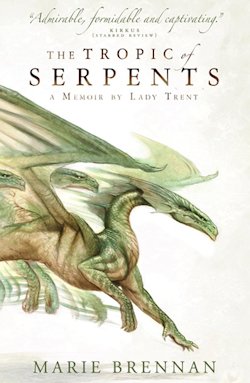
Feast your eyes on the cover art for the British edition of The Tropic of Serpents by Marie Brennan, which is to say the sequel to A Natural History of Dragons.
Susan Hill, author of The Woman in Black as well as any number of other terrific chillers, will have a new novel released this year. The managing director of Profile Books, who plan to publish Printer’s Devil Court this very September, wins best wordplay of the week because of this bit about the announcement:
“No Halloween would be complete without a perfect ghost story from Susan Hill. So thank the dark forces for her powers of imagination. She is indefatigable. It’s more than enough to make the spirits rise.”
“Self-publishing’s poster boy Hugh Howey is trying to kindle an author revolution after revealing ‘game chang[ing]’ new data that claims independent and small-publisher titles are dominating the bestselling genres on Amazon.”
Read all about it here.
Bloomsbury has acquired world rights to release another three novels in the Throne of Glass saga by Sarah J. Maas. And while we’re at it, “Maas is also writing a new series retelling the story of Beauty and the Beast.” Keep your eyes peeled for A Court of Thorns and Roses in spring 2015.
The shortlists for the Waterstones-sponsored Children’s Book Prize were unveiled of late, and I was surprised not to see Patrick Ness featured. That said, the three prizes are “awarded for new and emerging talent in children’s writing”—a description I don’t suppose More Than This fits.
In line with recent reports, 2014 will see not one but two new novels by the master of modern horror: Stephen King, of course. In addition to Mr Mercedes, a hard-boiled detective book due in June, Hodder & Stoughton will release Revival—the tale of a deal with the devil—day and date with its publication in the States on November 11.
Titan Books has secured the rights to release Daryl Gregory’s new novel, Afterparty, in the UK and across the Commonwealth.
Genre fiction failed to make an appearance in this list of the most borrowed books in the UK between 2012 and 2013, making our next quest clear: we have to burn the damned libraries down, don’t we?
Niall Alexander is an extra-curricular English teacher who reads and writes about all things weird and wonderful for The Speculative Scotsman, Strange Horizons, and Tor.com. He’s been known to tweet, twoo.










